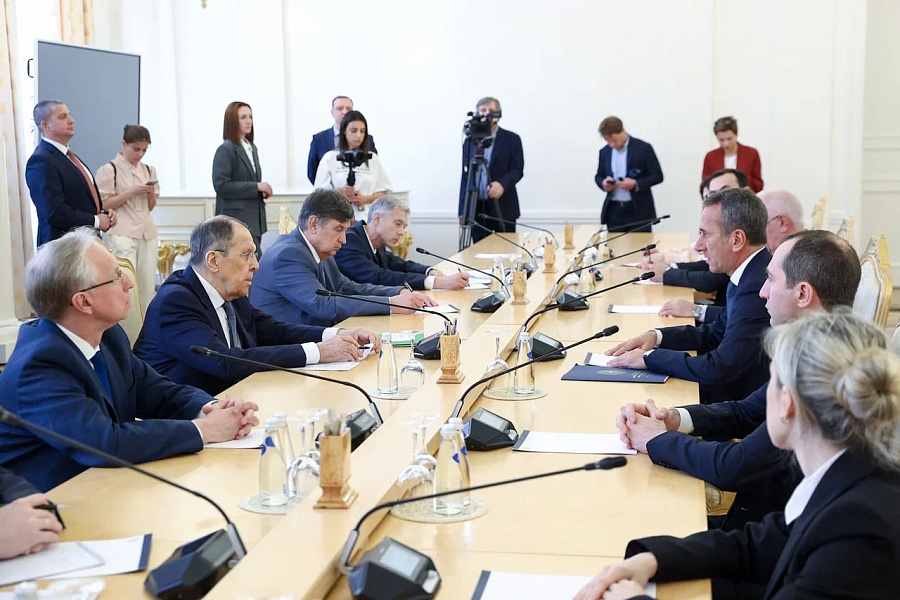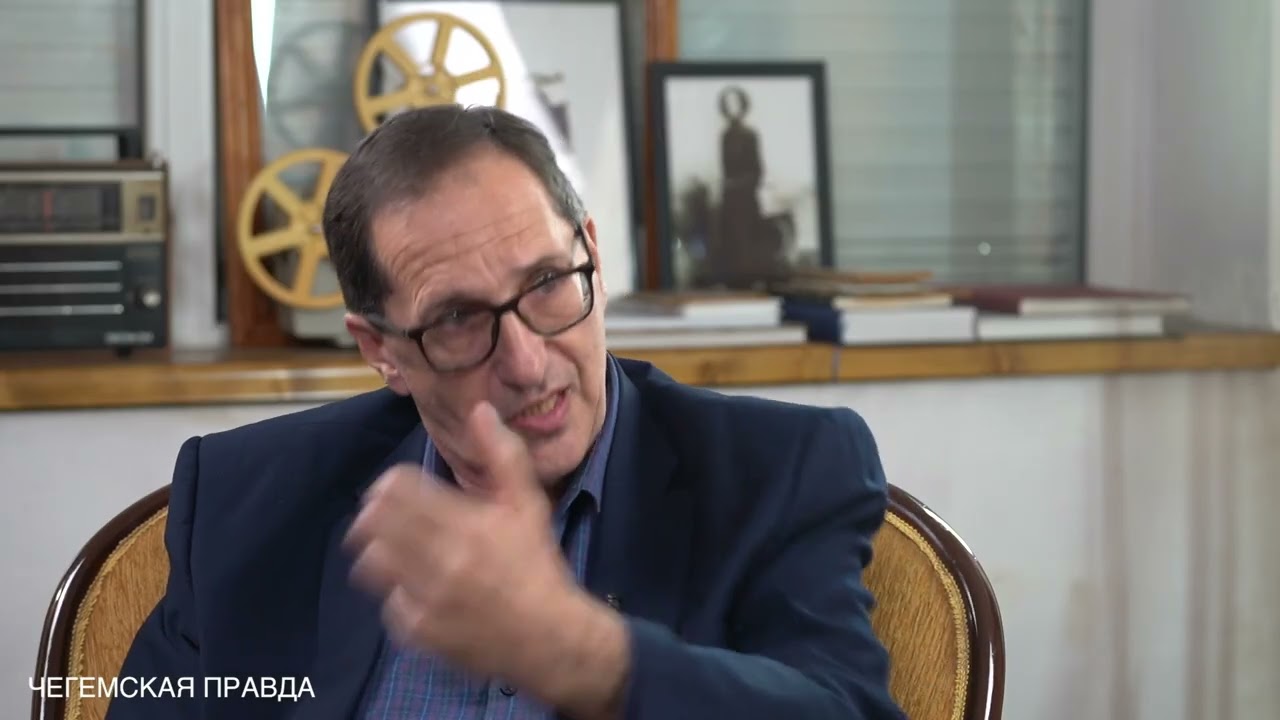This article was originally published on the “Echo of the Caucasus” website. The text and terminology are presented unchanged. All rights belong to “Echo of the Caucasus.” Publication date: August 29, 2024
The main theme of the upcoming political season in Abkhazia, which traditionally follows the tourist season, seems to be the relationship between the current head of the self-proclaimed republic, Aslan Bzhania, and Moscow. Abkhaz Telegram channels today report a cancellation of the Russian-Abkhaz “Intergovernmental Commission” (IGC) meeting and a freeze on Russian funding. What does the Kremlin really want from the Abkhaz leader?
The Abkhaz blogosphere is rife with rumors about a severe rift between Kremlin officials and the Abkhaz authorities. The Telegram channel “Compass of Abkhazia,” citing its sources, reports that Bzhania allegedly received a reprimand from the Russian President’s administration for failed implementation of the Kremlin’s plans in Abkhazia:
“From what we know, during the meeting with Bzhania at the Presidential Administration in Moscow, apparatchiks used a very specific word to describe Bzhania’s performance: FAILURE. This is how Moscow characterized Bzhania’s work during his presidency, without any ceremony.
The conversation was tough, and the disappointment was obvious. The Kremlin seems to have finally decided what action to take regarding Bzhania—a decision he, unfortunately, will not like. Russia is fed up with lies and empty promises, and the discrepancy between reports and reality on the ground is now apparent to them.”
The channel’s source reports the Russian side’s refusal to hold another session of the Russian-Abkhaz IGC.
“The Russian delegation (19 people) led by Vice Prime Minister Alexander Novak already has tickets and hotel reservations in Sukhumi… and has canceled the meeting scheduled for August 26, staying in Moscow,” says the source, who adds that the Russian side has not even discussed a new date for the meeting.
Abkhaz social media users and journalists are questioning how accurately this portrayal reflects reality. Among the facts supporting a rift between the Russian side and Abkhaz authorities are, besides the canceled IGC meeting, the absence of the traditional congratulatory messages not only from President Vladimir Putin on Independence Recognition Day, celebrated this week, but even from the Foreign Minister.
The latest update in the “Republic of Abkhazia” section on the Russian Foreign Ministry’s website is dedicated to the 16th anniversary of the August War and is signed by the ministry’s official representative, Maria Zakharova.
So, what has the Abkhaz president done to displease the Kremlin? Another Telegram channel, “Sukhumi Lantern”, which consulted “people with access to high offices in Moscow and Sukhumi,” attempted to present an answer today. The emerging picture is as follows:
“The Russians have repeatedly hinted and even openly stated that they are dissatisfied, to put it mildly, with the Abkhaz authorities’ non-committal attitude towards the agreements reached between the two countries.
This dissatisfaction has reached a boiling point. Essentially, the Russian side had to issue an ultimatum to our authorities: either fulfill the voluntarily assumed commitments, or Moscow will halt funding.
As of August 1, 2024, Russia has already suspended co-financing of the program for payments to Abkhaz budget employees in the amount of 170 million rubles per month. If the situation does not change, the next step will be the cancellation of compensation for electricity transfers from Russian networks to Abkhazia.”
The channel authors then list the commitments that the Abkhaz authorities have taken on — laws on foreign investors, apartments, “foreign agents,” etc. The authors add their comments explaining the need for these laws in a distinctly pro-Russian tone. They do not believe the Abkhaz authorities’ assurances that their adoption could lead to a political crisis, nor do they think that Abkhaz parliamentarians are obstructing the Kremlin’s agenda:
“In Moscow… it is rightly believed that such excuses are laughable. The president and the prime minister have enough political and administrative weight to push the necessary decisions through parliament.
Our sources claim that Moscow is well-informed about the internal situation in the Republic and understands that the adoption of these laws will not lead to the catastrophic consequences shouted about by the opposition and pro-Western bloggers. On the contrary, the implementation of the laws will quickly yield tangible results that will positively impact the social and economic situation in Abkhazia,” writes “Sukhumi Lantern.”
What the authors of “Sukhumi Lantern” do not explain is the reason for such haste on Russia’s part. After all, Aslan Bzhania has achievements to present to the Kremlin—just over six months have passed since the ratification of the agreement on ceding the Pitsunda estate and its surrounding areas and waters to Russia. Why suddenly, without waiting for the end of the summer parliamentary recess, apply direct pressure?
The reasons for the cooling might be found in Tbilisi. For instance, Inal Khashig, editor of “Chegem Truth,” analyzing the absence of congratulatory messages from Vladimir Putin on Independence Recognition Day, suggested that the Kremlin simply does not want to make statements about Abkhazia and South Ossetia so as not to poison the well for “Georgian Dream” during their parliamentary race:
“In general, President Putin did not congratulate either Abkhazia or South Ossetia. One cannot say he forgot, and the protocol service overlooked the holiday of international recognition for the two republics. It was planned this way, given the situation—so as not to offend Bidzina Ivanishvili and ‘Georgian Dream’ before the parliamentary election.”
The fact that the Georgian election might indeed be an important factor in current Russian-Abkhaz relations is particularly indicated by the wording used by Maria Zakharova in a comment on the anniversary of the August War:
“It is quite possible that the Kremlin might now demand more tangible gestures from Sukhumi towards Tbilisi. And for Aslan Bzhania, who has presidential elections approaching, such gestures could be politically problematic, if not fatal.”


